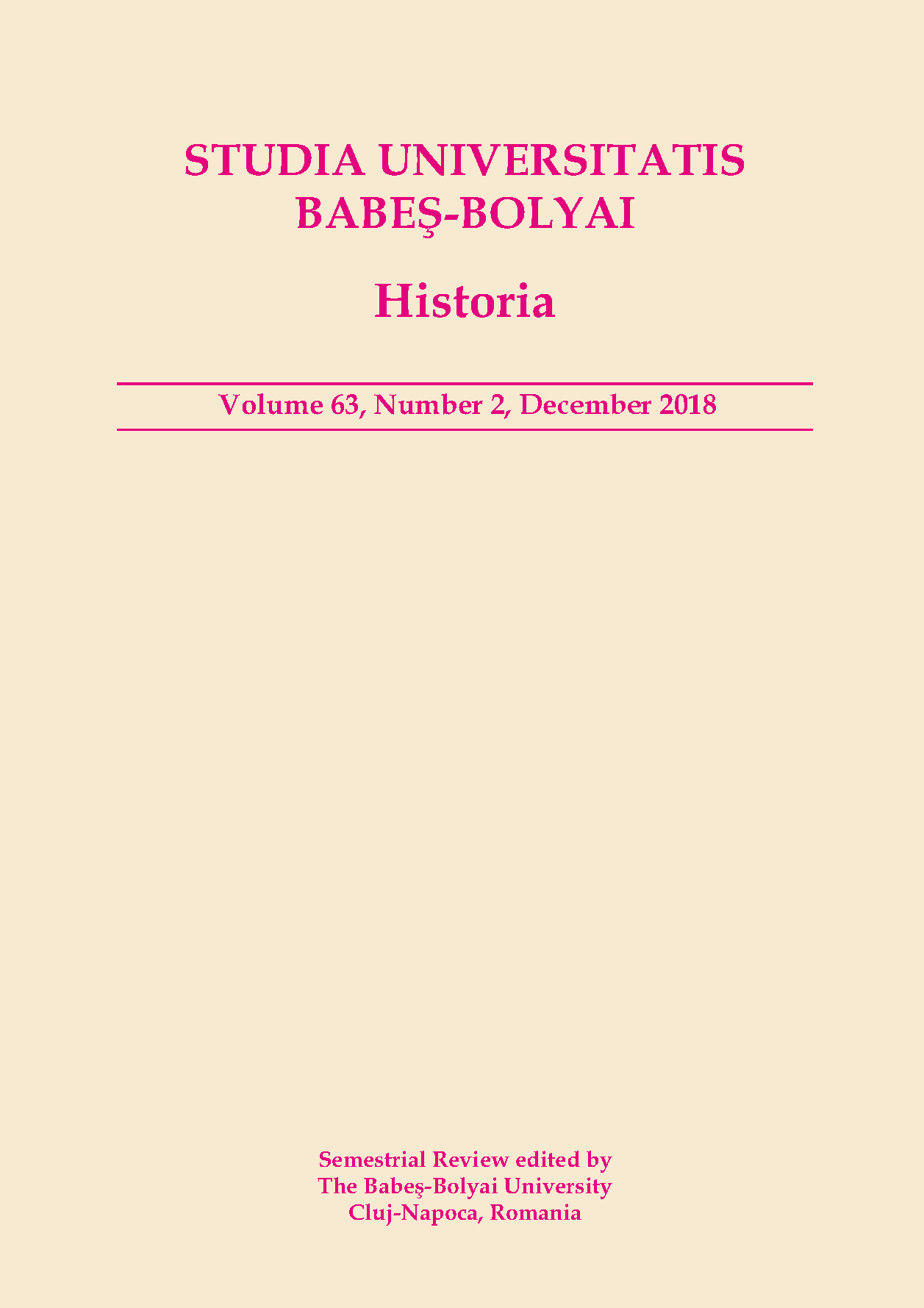The Romanians’ Ideals of Liberalism and Nationality in 1918
DOI:
https://doi.org/10.24193/subbhist.2018.2.01Keywords:
Austro-Hungarian Empire, Transylvania, Romanian civil society, liberalism and nationalism.Abstract
The goal of the present paper is to show how both in the autumn of 1918 and before the Union of Transylvania with Romania on 1 December 1918, liberalism and nationalism steered the course of the Romanian nation in Transylvania as it entered the modern era. Romanians had accumulated democratic experience over several decades, with effective results in managing ecclesiastical, educational, cultural, social and economic problems. In the autumn of 1918, when the Great War was nearing its end and the Austro-Hungarian Empire was on the brink of breaking apart, they were able to assume the responsibility of detaching Transylvania from Hungary and providing fair and efficient governance in a province that had been devastated by 4 years of war and was now on the verge of collapse. Our attempt at reconstructing the destiny of the church and of Romanian civil society in the process of laying the democratic foundations of the Union of 1918 has revealed the complex political, economic and social transformations of the Habsburg monarchy from the 1848 revolution to the First World War.
Rezumat: Liberalism şi naţionalitate la români în anul 1918. Scopul acestui articol este acela de arăta cum în toamna anului 1918, dar şi în deceniile anterioare Unirii, liberalismul şi naţionalismul au jalonat parcursul naţiunii române din Transilvania în epoca modernă. Prin urmare, românii au acumulat o experienţă democratică pe parcursul mai multor decenii, cu rezultate eficiente în gestionarea problemelor bisericeşti, şcolare, culturale, sociale şi economice. Ei au fost capabili în toamna anului 1918, când Marele Război era spre final iar Imperiul Austro-Ungar la un pas de dezmembrare, să îşi asume responsabilitatea desprinderii Transilvaniei de Ungaria şi a guvernării eficiente şi corecte a unei provincii devastate de patru ani de război şi aflată în pragul colapsului. Demersul nostru de a restitui, într-o încercare sintetică, destinul bisericii şi al societăţii civile în prepararea democratică a societăţii româneşti pentru Unirea de la 1918 a relevat complexitatea transformărilor politice, economice şi sociale din monarhia habsburgică între revoluţia de la 1848 şi Primul Război Mondial.
Cuvinte-cheie: Imperiul Austro-Ungar, Transilvania, societate civilă românească, liberalism şi naţionalism.
Downloads
Published
How to Cite
Issue
Section
License
Copyright (c) 2018 Studia Universitatis Babeș-Bolyai Historia

This work is licensed under a Creative Commons Attribution-NonCommercial-NoDerivatives 4.0 International License.






